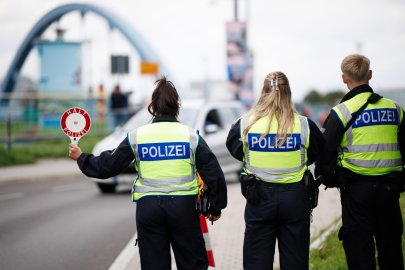Poland Expands Border Checks with Germany and Lithuania
Poland has recently announced an extension of border checks along its borders with Germany and Lithuania. This decision comes amid rising concerns over immigration and security across Europe, particularly in light of ongoing geopolitical tensions and the increasing number of migrants seeking refuge or better opportunities in European countries.
The Context Behind the Decision
The Polish government has cited a need to enhance national security as the primary motivation for this move. With the ongoing conflict in Ukraine and the subsequent influx of refugees, Poland aims to ensure that its borders remain secure. Additionally, the rise in illegal crossings and smuggling activities has prompted a more stringent approach to border management.
Key factors influencing this decision include:
Impact on Travelers and Trade
The expansion of border checks is likely to affect both travelers and cross-border trade. Travelers may experience longer wait times at border crossings, impacting their journey plans. Additionally, businesses that rely on efficient cross-border logistics may face delays, potentially affecting supply chains.
However, the Polish government has assured that it will strive to minimize disruptions while maintaining the integrity of its borders. It is crucial for travelers to stay informed about the latest updates regarding border regulations, especially if they are planning to cross into Poland from Germany or Lithuania.
Immigration Policies and Security Measures
The decision to enhance border checks aligns with Poland’s broader immigration policies aimed at maintaining national security. The government has been proactive in implementing measures such as:
As Poland navigates these complex issues, it remains committed to balancing security needs with humanitarian obligations. The country has shown willingness to assist those in genuine need while ensuring that its borders are not exploited by those seeking to engage in illegal activities.
Future Developments in Immigration Policies
As the situation evolves, it is essential to keep an eye on the latest immigration news, particularly regarding policies that may impact travelers and migrants. The Polish government may introduce further measures based on the ongoing assessment of border security effectiveness.
Additionally, neighboring countries are also adjusting their immigration policies in response to regional developments. For instance, Lithuania has been closely monitoring its borders and coordinating with Poland to ensure a unified approach.
The expansion of border checks is just one aspect of a broader narrative concerning immigration and national security in Europe. As various nations grapple with the implications of increased migration, it is evident that collaborative efforts will be vital in addressing these challenges effectively.
Conclusion
In summary, Poland’s decision to expand border checks with Germany and Lithuania reflects a proactive stance on national security amid rising immigration pressures. As this situation unfolds, it is crucial for travelers to stay informed and for policymakers to remain vigilant in balancing security with humanitarian efforts. The ongoing developments in immigration policies will continue to shape the landscape across Europe in the coming years.
As we monitor immigration news, it is essential to understand the implications of such measures on various stakeholders, including migrants, businesses, and travelers. The journey toward a secure yet compassionate approach to immigration is just beginning.










